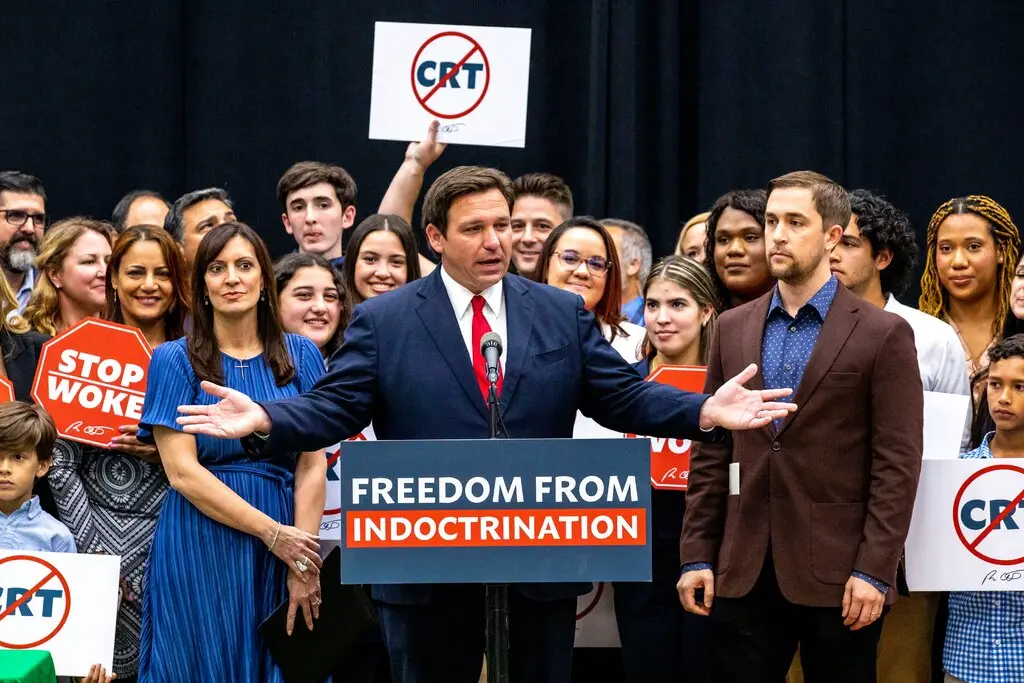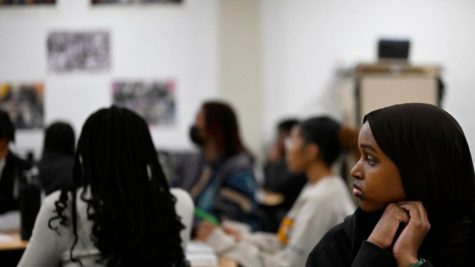Florida Blocks AP History Course Under “Stop WOKE Act”
February 13, 2023
This past month, Florida rejected an advanced placement African American studies class that was proposed in August, claiming that the course “lacks educational value and historical accuracy.” Following this rejection, the country has once again been drastically divided on the issue. Many people have been left outraged, as they believe that the teachings of the African American experience should be something discussed with all students. Others have sided with Florida’s Board of Governors, saying that their elected officials made the right decision and encouraging them to make similar ones. Here’s a summary of everything behind the class and why Florida rejected it.
Why Did Florida Reject The Class?
One of the main reasons that Florida Officials rejected the proposal of the class is that the Florida Board of Governors believe it would be teaching critical race theory, which is the argument that racism is not just the product of widespread individual prejudice, but is, however, embedded in the American legal system. Commissioner of Florida Education, Manny Diaz Jr., said that “Florida rejected [the] AP course filled with Critical Race Theory and other obvious violations of Florida law. We proudly require the teaching of African American history. We do not accept woke indoctrination masquerading as education.” Speaking at a press conference in Jacksonville, Florida, Gov. Ron DeSantis said that the reason the state is blocking the course is that it included discussions and studies of “queer theory”, as well as political movements for “abolishing prisons.” DeSantis then went on to say that the course pushed a specific political agenda and that it’s “the wrong side of the line for Florida standards. We believe in teaching kids facts and how to think, but we don’t believe they should have an agenda imposed on them when you try to use Black history to shoehorn in queer theory, you are clearly trying to use that for political purposes.”

This is not the first time Florida has rejected potential educational devices because, in 2022, they proposed the “Stop W.O.K.E Act”, WOKE, in this case, stands for “Wrong to Our Kids and Employees”. According to the American Civil Liberties Union (ACLU), he Stop W.O.K.E Act is “a classroom censorship law which severely restricts Florida educators and students from learning and talking aout issues related to race and gender in higher education classrooms.” The proposal of this bill did not go over well, however, as in August of 2022, a lawsuit against the legislation was filed by educators and students at multiple Florida colleges and universities against the Florida Board of Governors, claiming that the Act violates both the First and Fifteenth Amendments by “imposing viewpoint-based restrictions on instructors and studnets in higher education that are vague and discriminatory.” The potential violation of The Equal Protecton Clause was also mentioned in the complaint, going on to say that the bill was “enacted with a racially discriminatory purpose and will have a disparate impact on Black educators and students.” By Novemeber of 2022, the courts sided with the students and educators, isussing a ruling that immediately blocked the bill from taking place in places of higher education.
What’s Really In The Course?
The purpose of the African American Studies class is to introduce students to the experiences and contributions of African American people throughout history through various lenses. The class has four different significant units; The history of the African diaspora, the period of slavery and abolition in the U.S., African American experiences since the abolition of slavery, and various black movements and debates including feminism, Black Power, and the Civil Rights movement.

Christopher Tinson, the chair of the African American Studies department at St. Louis University told NPR that “there’s nothing particularly ideological about the course except that we value the experiences of African people in the United States.” He continues, saying “We didn’t want to just focus on slavery, although slavery is a part of it. We wanted to give a comprehensive view of the culture, literature, historical development, political movements, and social movements.” In addition to these topics, students would also explore important historical events for such as the Harlem Renaissance and the Haitian Revolution, which Tinson argues is a severely underrepresented and overlooked topic in the average history class, yet the impact of it is comparable to both the American and French Revolutions.
What Comes Next?
Although it was blocked in Florida, the AP class is still being piloted in 60 other high schools, testing out the curriculum slowly but surely. As of now, a revised curriculum for the class has been submitted to Flordia’s Education Department and is currently awaiting approval and or denial. Three high school students, Victoria McQueen, Elijah Edwards, and Juliette Heckman, are all threatening to sue the state of Florida and Gov. DeSantis if the class is not approved, telling NBC Nightly News that the ban is “keeping African Americans silenced” and promoting “blatant racism.” Civil rights attorney Ben Crump is expected to represent the students and their lawsuit if it continues to go forward.





